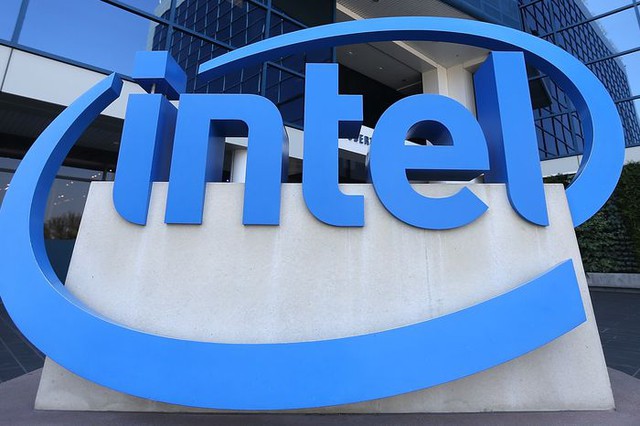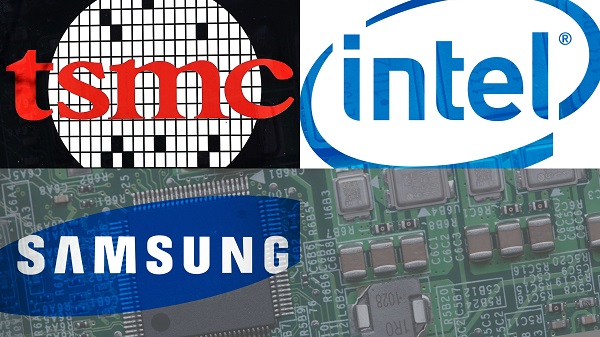The fierce battle between the three “big guys” in the chip industry
- Tram Ho
Intel is gradually entering the field of making chips for external customers, also known as the foundry business. Before that, Intel built a reputation for designing and manufacturing its own advanced semiconductors for PCs and servers. Entering into contract chip manufacturing puts Intel in direct competition with two of its own major suppliers, Taiwan Semiconductor Manufacturing Co. ( TSMC ) and Samsung Electronics.
For Intel, the move opens up both a potential new revenue stream and a way to regain a technological edge in chip manufacturing that has been lost in Asia for decades.

Intel is gradually entering the field of chip production for external customers
In the foundry business, Intel has spent quite a lot, including $ 20 billion for a chip production facility in Oregon (USA) and $ 16.8 billion to build a factory in Germany, as well as 3, 5 billion USD to expand chip packaging facility in New Mexico (USA) with up to 20 billion USD investment in Arizona fabs and the rest to expand chip production in Ireland. Not only that, last February, Intel acquired Israel’s Tower Semiconductor foundry for $5.4 billion.
Speaking to Nikkei Asia, Randhir Thakur, head of Intel Foundry Services (IFS), said: “Our ambition is to become the number two foundry in the world by the end of this decade.” Reportedly, IFS was established last year to make Intel CEO Gelsinger’s vision a reality.
Currently, Intel is struggling to win customers. Data from research firm Trendforce shows that TSMC, the world’s largest contract chipmaker, controlled more than 53% of the global foundry market in the first half of this year. While Samsung Electronics also accounted for a large proportion. Therefore, many experts believe that in the near future, there will be a fierce battle between these three “big guys” in the global chip industry.

The competition between TSMC, Samsung and Intel is gradually heating up
Analysts say that Intel’s foundry business strategy is reasonable and the current huge investments are what Intel is forced to do to enter this business. “I think it’s a very logical strategy for Intel to expand into the manufacturing business,” said David Crawford, a senior leader at Bain & Co.. This strategy is not for the risk-averse investor. The worst strategy for Intel is to do normal things.”
However, Mr. Chris Miller, professor of international history at Tufts University, said that Intel will have to do a lot to catch up with TSMC on the technology front. Specifically, this expert pointed out, in terms of actual manufacturing processes, the most advanced chip production now takes place in Taiwan (China), where TSMC is making 90% of the most advanced processor chips. world.
“TSMC has been a leader in the field for the past three decades, defining business changes and pursuing technological advancements. Intel has lagged behind TSMC technologically. Ten years ago, Intel had the most advanced processing technology. Today, that’s not the case anymore,” said Mr. Miller.
Most likely, in the future Intel can promote more chip production in the United States, but this will not be a significant change. In 5 years, businesses will still buy a lot of advanced chips from TSMC.
There are three companies in the world that make advanced logic chips: TSMC, Samsung and Intel. And in five years, one of these three companies will be at the top. And chances are, changes in geopolitics could give Intel the opportunity it’s been waiting for.
Source : Genk
